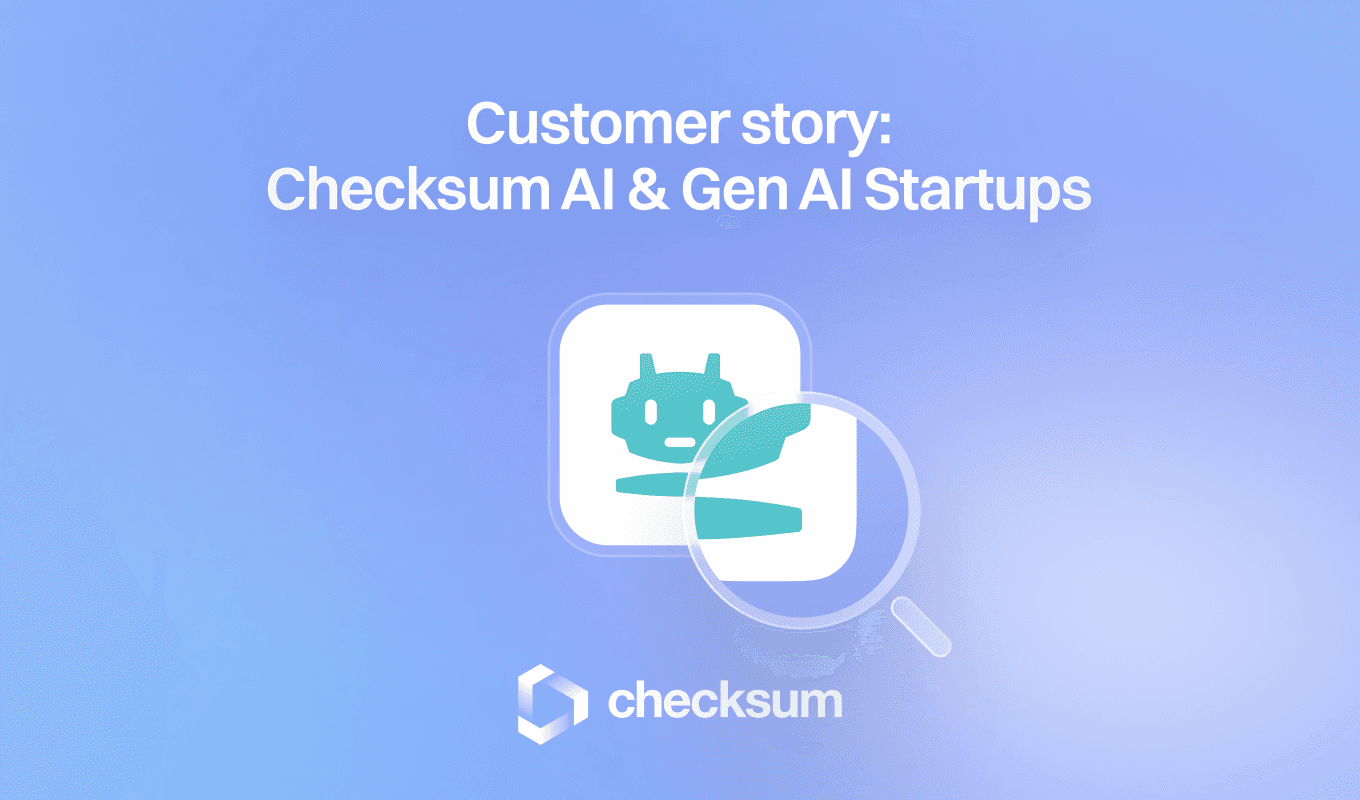
Case Study: A Stealth Gen AI Startup
“Gen AI Testing Gen AI”
How A Stealth Gen AI Startup uses Checksum to validate and accelerate their own AI innovation
Overview
This Stealth Gen AI Startup is an early stage AI-first productivity platform built for creative and technical teams. Their core product uses generative AI to summarize, rewrite, and contextualize content across projects. As they scaled their AI feature set, they needed to ensure quality and reliability without slowing velocity or hiring a large and costly QA team.
With Checksum, the startup deployed AI agents testing AI SaaS-based applications using Checksum’s self-healing Playwright tests to continuously validate their own generative workflows.
Challenge
At this formative stage, this startup was iterating at lightning speed by launching new generative-AI features every week, experimenting with user flows, and refining models in real time. But with that pace came risk: every iteration introduced new complexity and potential instability across the product.
The team needed a QA solution that could evolve as fast as their AI-driven model and be able to validate unpredictable outputs, fit seamlessly into their CI/CD pipeline, and provide confidence without adding headcount or slowing momentum. As Micah Parker, VP of Engineering, explained:
“We needed a testing engine that could think like our AI and anticipate change, adapt on the fly, and never become the bottleneck.”
The Solution
Checksum’s AI-powered testing agents became an extension of the startup’s own engineering team. Within days, Checksum began autonomously mapping their “Snip” workflows, detecting test cases directly from the live application without human input or prewritten specs. From there, Checksum generated full Playwright tests straight into their GitHub repository, integrating instantly into their CI/CD pipeline. Each test was self-maintaining through real-time auto-healing, adapting automatically when selectors or UI logic changed.
The result was an AI testing another AI in production and continuously learning, validating, and improving coverage in the background while the startup’s developers focused on innovation.
“Checksum fits into our stack like a new engineer who never sleeps,” said Micah Parker, VP of Engineering. “We didn’t need to train it, it just understood our product and kept it stable as we scaled.”
The Impact
Checksum didn’t just automate testing, it also redefined how quality fit into product development. With 80%+ coverage of critical workflows in just a few months, this startup’s engineers began using QA during development to shape new features, not just validate them afterward. Each new release was automatically tested in CI/CD, and Checksum’s self-healing AI maintained those tests as the product evolved.
What used to be reactive QA became a creative input. Engineers could prototype faster, experiment freely, and ship confidently knowing every flow was already being tested by another AI. Checksum became both a guardrail and a guide, surfacing issues early, validating assumptions instantly, and keeping the Gen AI models stable through continuous change.
“Checksum turned QA into a development tool,” said Micah Parker, VP of Engineering. “Now testing doesn’t slow us down, it helps us build better features faster.”
What began as an experiment in “Gen AI testing Gen AI” evolved into a new standard for AI-driven QA.
This adoption with a Gen AI company shows what the next era of software testing looks like: Gen AI validating Gen AI. Instead of humans writing brittle scripts for deterministic systems, Checksum agents continuously learn the evolving behaviors of generative systems turning QA into a living, adaptive process.
Brittany is an Account Executive at Checksum. She works with companies across healthtech, fintech, and SaaS to scale Playwright-based automation, improve release confidence, and reduce QA overhead.
Brittany brings a practical, results-first approach to every partnership, helping teams validate Checksum through real workflows, prove value quickly, and move from pilot to production with minimal friction.

